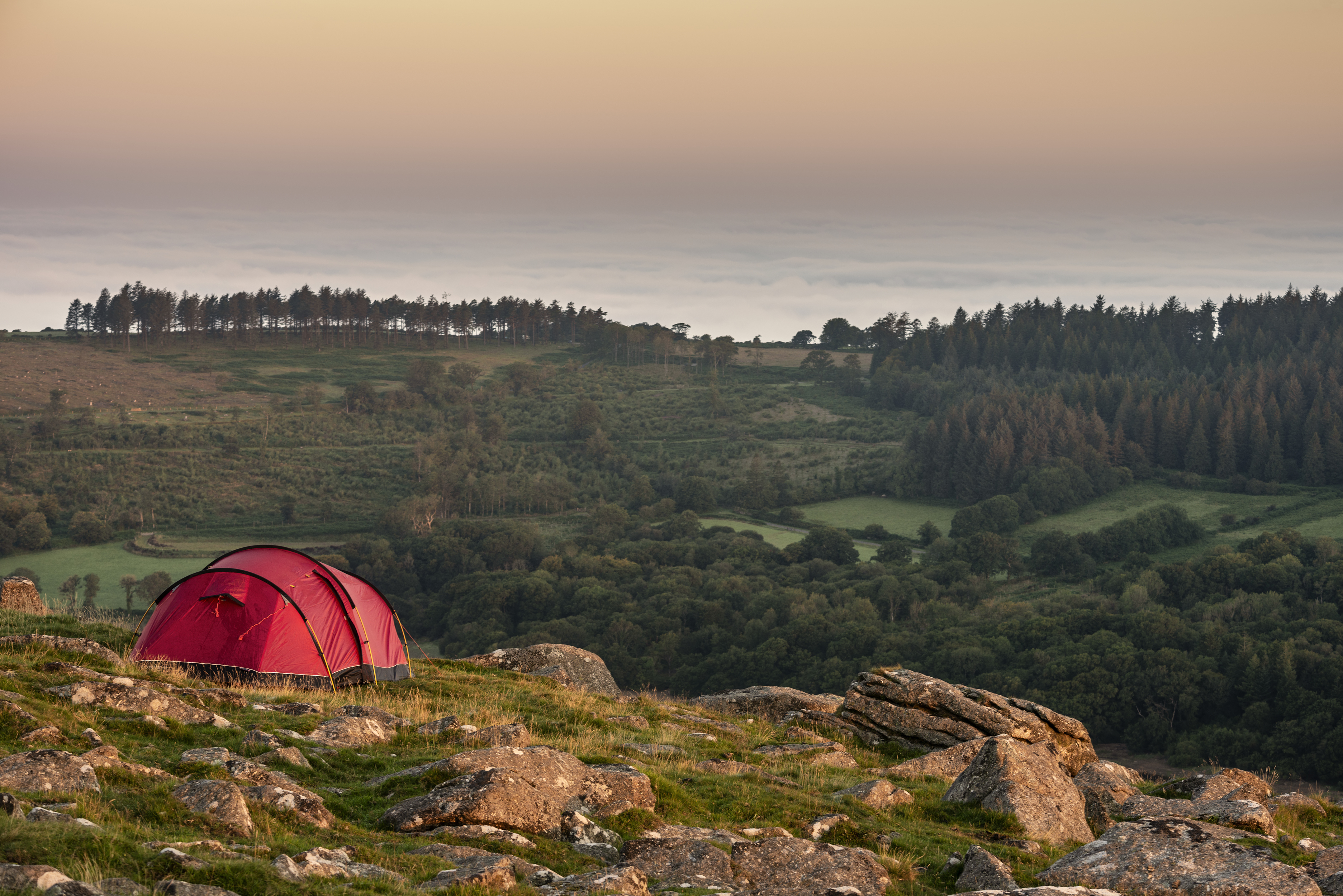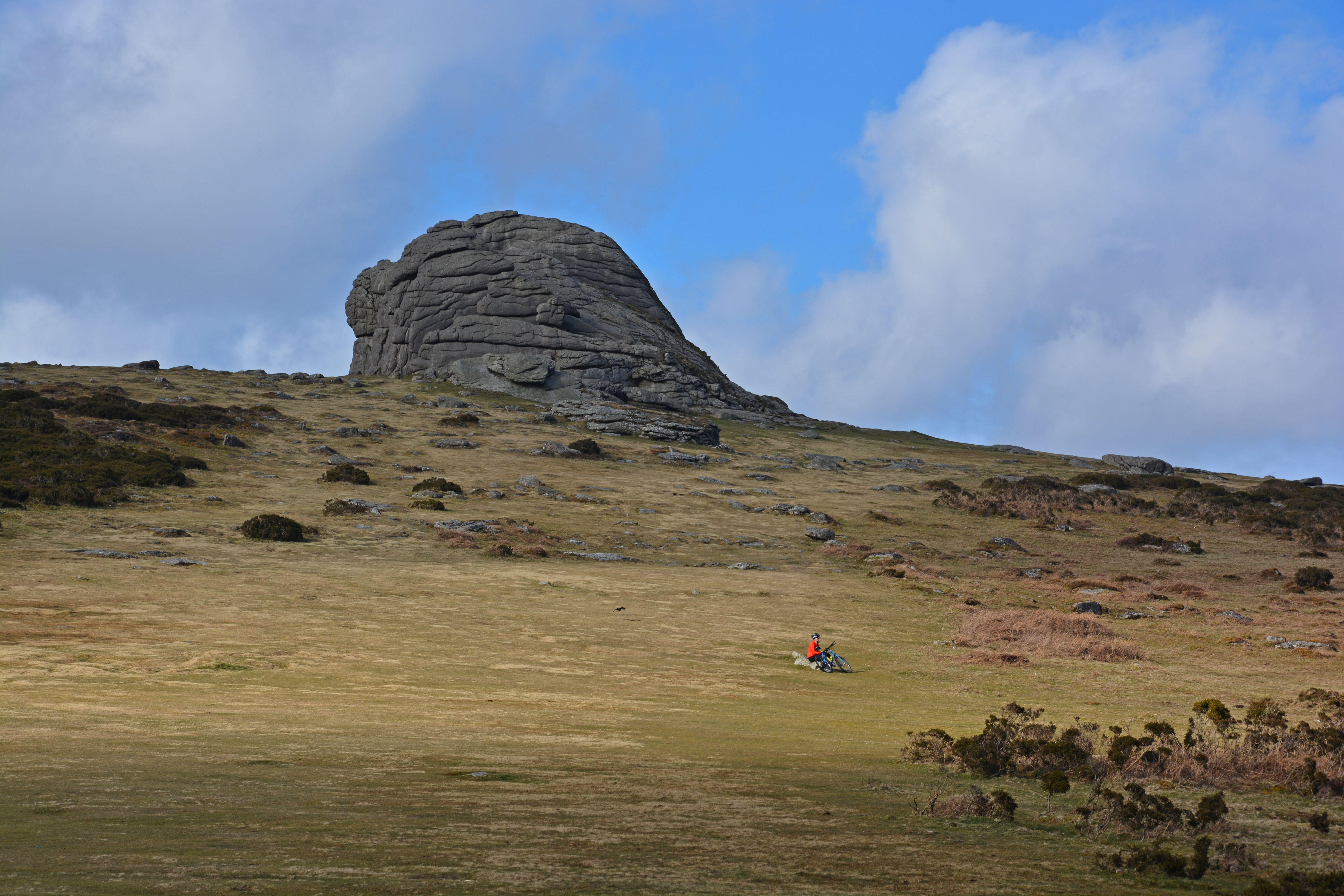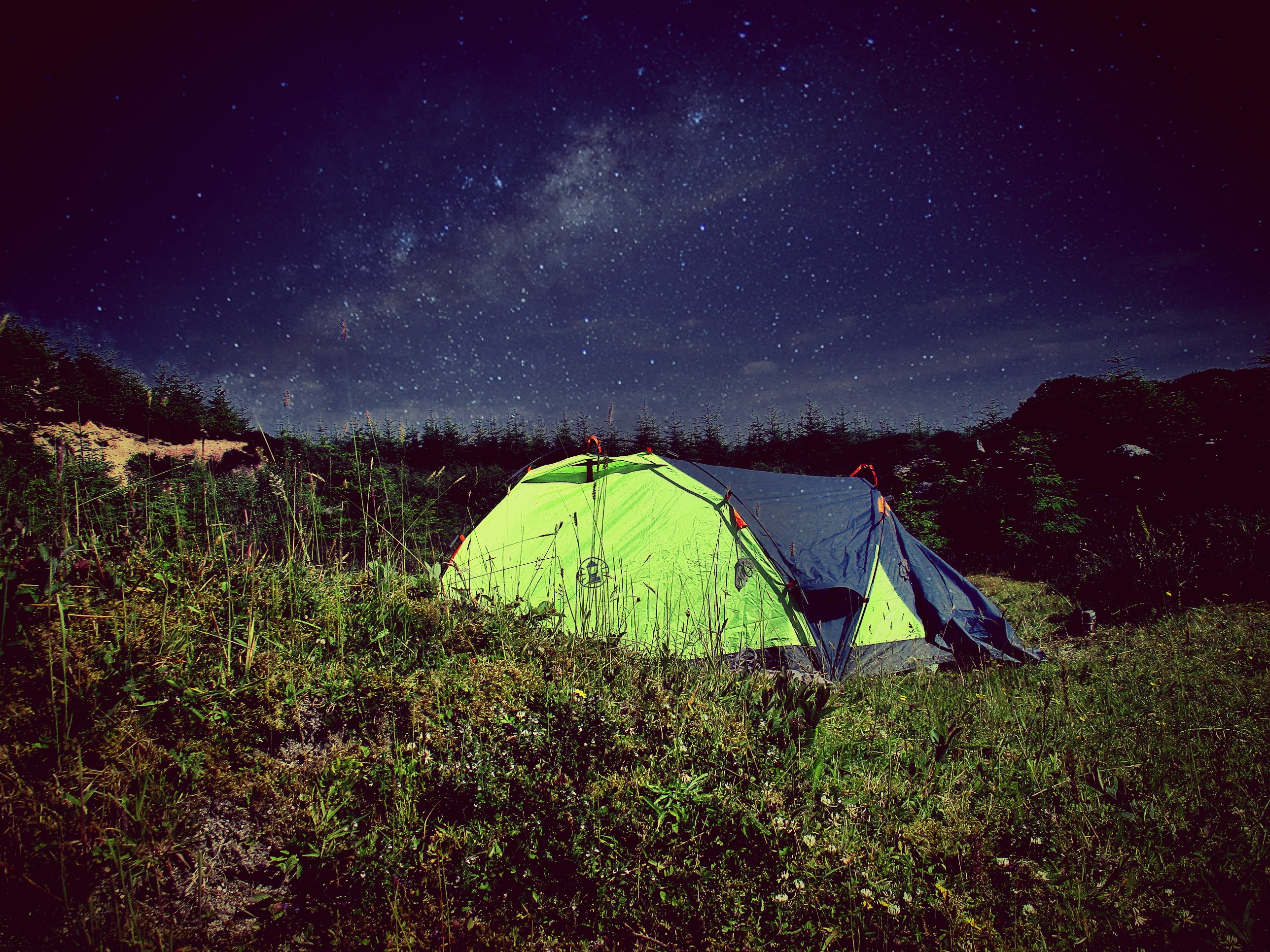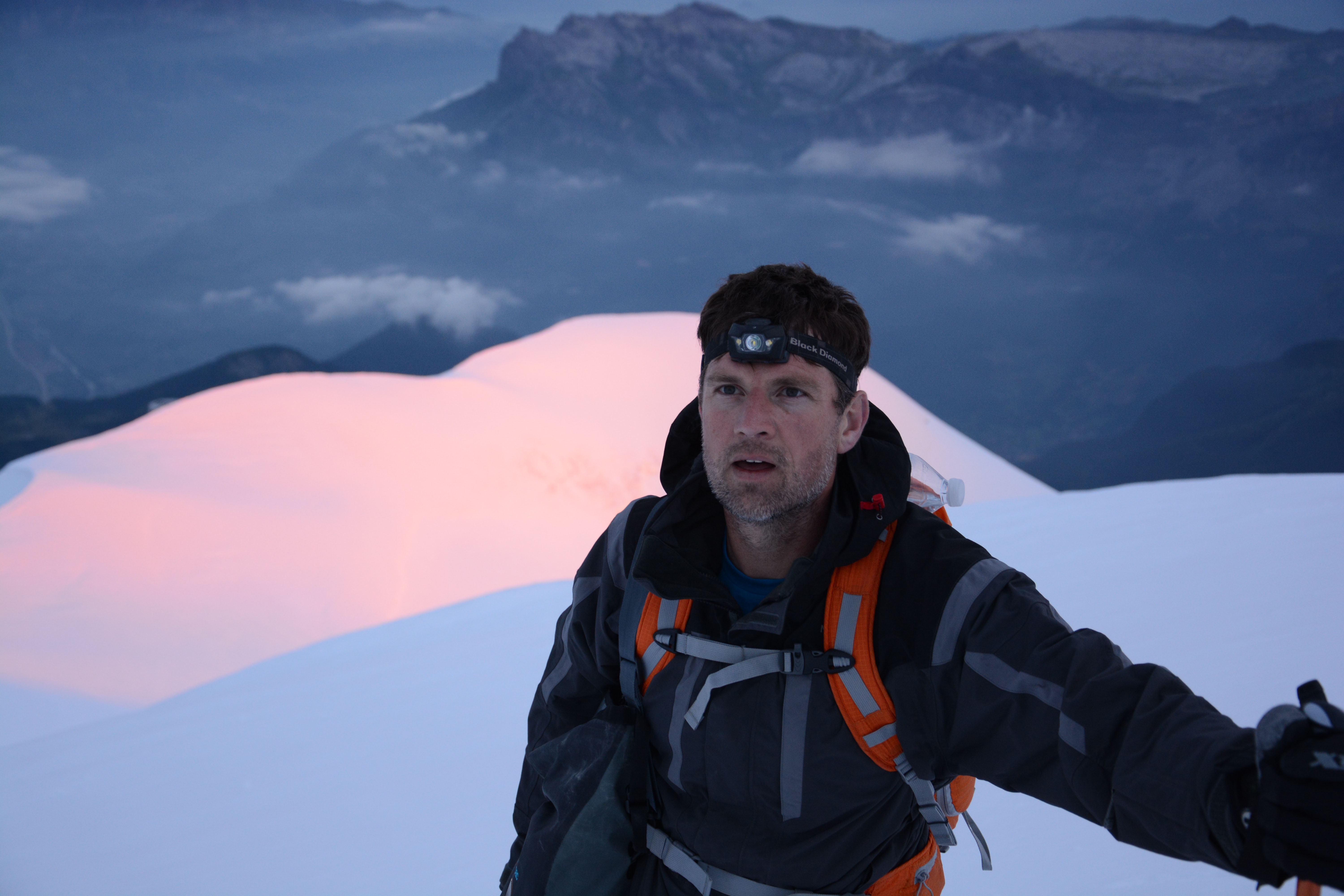Fightback begins, after legal right to wild camp on Dartmoor is lost
Outdoor groups and wilderness access advocates prepare for battle after wealthy landowner wins legal case to remove the right for walkers, stargazers, bird watchers and youth groups to wild camp on Dartmoor


In what has been seen as a devastating blow to access rights in England, a wealthy hedge fund manager who relatively recently purchased a large amount of land on Dartmoor, has won a legal case to overturn peoples’ long-held right to wild camp on the moor.
For decades, Dartmoor has been the last place in England where people could legally camp in lightweight backpacking tents, bivvies and hammocks without seeking the permission of the landowner, a right that was seen as enshrined in the Dartmoor Commons Act 1985. The act states that everyone is free to enjoy recreational activities on Dartmoor, if they arrive by foot or horseback.
However, 59-year-old millionaire Alexander Darwall – who has owned the 1,619-hectare (4,000-acre) Blachford estate on southern Dartmoor since 2011, and runs pheasant shoots and deerstalking on the land – recently sought to overturn the interpretation of the act, by taking Dartmoor National Park authority to court.
His legal team argued that camping is not a recreational activity, and yesterday Sir Julian Flaux, the chancellor of the high court, agreed, ruling: “In my judgment, on the first issue set out at [14] above, the claimants are entitled to the declaration they seek that, on its true construction, section 10(1) of the 1985 Act does not confer on the public any right to pitch tents or otherwise make camp overnight on Dartmoor Commons. Any such camping requires the consent of the landowner.”

A moor explorer enjoys a moment of tranquility beneath Haytor
The decision has been met with widespread dismay and fury by outdoor groups. They argue that the vast majority of wild campers abide by strict self-imposed leave-no-trace principles, and that anyone who behaves destructively on the moor won’t abide by the laws anyway. In the 35 years that the existing bylaws have been in place – with the interpretation that wild camping was legal – there hasn’t been a single appeal against them.
After the ruling, Dartmoor National Park Authority issued a statement saying: “We are really disappointed with the outcome but obviously respect the judgment. We will now consider our position carefully before deciding on whether to appeal, and on what grounds.
“We maintain that wild camping is an important form of open-air recreation and is a way to enjoy the special qualities of the National Park – for example the dark night skies, sense of wilderness and the tranquillity that can be derived from the commons of Dartmoor. Done properly, and with respect, it has little impact on the environment but can have significant health and wellbeing benefits.”
Get all the latest news, reviews, deals and buying guides on gorgeous tech, home and active products from the T3 experts

The Right to Roam movement have sworn to challenge the decision using all means possible
You've got to fight, for your right, to overnight in the wilderness
The judgement begs the question, if camping is not recreational, what is it? The Dartmoor Commons Act doesn’t specifically mention camping, but it does reference a number of proscribed activities – including killing animals and lighting fires, which are both forbidden – and camping is not included on that list.
The fightback against the ruling will likely focus on this, but the concern for advocates of wild camping is that the cash-strapped National Park will struggle to find the funds to appeal the decision. There has been talk of a crowdfunded campaign to help raise money for an appeal, and we will keep you updated about this.
In the meantime, campaigners and advocates for greater access to countryside areas are not taking yesterday’s decision lying down – or rather they’re preparing to go into battle for their right to lie down and spend the night in wild places.
The Right to Roam movement today launched their fightback against the ruling, saying: “This is a very real example of how, if we don’t fight for our right to access nature, it will be stripped away. Darwall is just another in a long line of powerful landowners who use their arbitrary ownership of the land to exclude us, the public, from the countryside.
“The Right to Roam is more than walking. Our right to belong in the countryside is our right to forge a deep connection with nature and land. Wild camping is pitching a tent when your body is tired and allowing the landscape to hold you where you belong, it's learning about yourself and nature and it's being inspired by looking up at the cosmos like we have done for millennia. Losing the last place to freely camp in England is significant and this ruling is a reminder of why we fight.
“We will not back down. We will not let Darwall’s entitled, misanthropic behaviour destroy the only remaining scrap of land where we are permitted to sleep freely under the sky.”
To assist in this struggle, you can contribute to the Right to Roam war chest here. And to join the group on Dartmoor in a protest on 21 January, register (for free) here.

Rites and wrongs
Spending a night under the stars on Dartmoor is seen as a rite of passage for many in the South West (and beyond), and yesterday's decision will have wide ranging consequences. Hundreds of school-age children enjoy exploring Dartmoor during Duke of Edinburgh expeditions every year, and the Ten Tors challenge is an annual event that sees many more staying overnight on the moor.
Dartmoor is a place where parents and youth groups take young people to teach them the principles of leave-no-trace camping, and countless backpackers, bikepackers, wildlife watchers, photographers and stargazers spend quiet nights on the moor, leaving no mess behind and disturbing no one in the process. All of these people, if they choose to continue with their harmless activities, will be criminalised by yesterday’s ruling.
Speaking to T3 after the judgement, explorer and author Alastair Humphreys said: “It is shocking to me that a wealthy individual can be given priority over a National Park, and that he is allowed to lay claim to 4000 acres of wild land."
"And it is ludicrous that camping is deemed to be not a recreational activity, that generations of enjoyable adventures and important connections to the landscape and nature have come to an end, and that any one person is allowed to own, control and exclude people from 4000 acres of our own countryside.”
And the award-winning travel, adventure and outdoor journalist, Phoebe Smith, author of books about wild camping and extreme sleeping, told us she was mourning the loss this ruling represents.
“The ruling today is a massive backward step that sees further erosion of the rights for outdoor enthusiasts,” she said. “Wild camping in Dartmoor is a recreational activity that can light the spark of a passion in future wildlife and environmental conservationists. A whole generation of us have now lost this, due to the greed of a millionaire landowner. The only option now is to fight this with everything we have.”
Darwall is a donor to the Conservative Party and has historically financially supported both UKIP and Vote Leave Ltd. Labour’s shadow environment minister Alex Sobel promised that if his party win power at the next election they will extend the right to roam. In The Guardian he is quoted as saying, in response to yesterday’s judgement: “Our national parks should be open to all and access to Dartmoor is integral to that. Labour will expand the right to roam as part of our programme for government. Our natural spaces are here for us all to share for biodiversity, wellbeing and equity.”

Author of Caving, Canyoning, Coasteering…, a recently released book about all kinds of outdoor adventures around Britain, Pat Kinsella has been writing about outdoor pursuits and adventure sports for two decades. In pursuit of stories he’s canoed Canada’s Yukon River, climbed Mont Blanc and Kilimanjaro, skied and mountain biked across the Norwegian Alps, run ultras across the roof of Mauritius and through the hills of the Himalayas, and set short-lived speed records for trail-running Australia’s highest peaks and New Zealand’s nine Great Walks. A former editor of several Australian magazines he’s a longtime contributor to publications including Sidetracked, Outdoor, National Geographic Traveller, Trail Running, The Great Outdoors, Outdoor Fitness and Adventure Travel, and a regular writer for Lonely Planet (for whom he compiled, edited and co-wrote the Atlas of Adventure, a guide to outdoor pursuits around the globe). He’s authored guides to exploring the coastline and countryside of Devon and Dorset, and recently wrote a book about pub walks. Follow Pat's adventures on Strava and instagram.